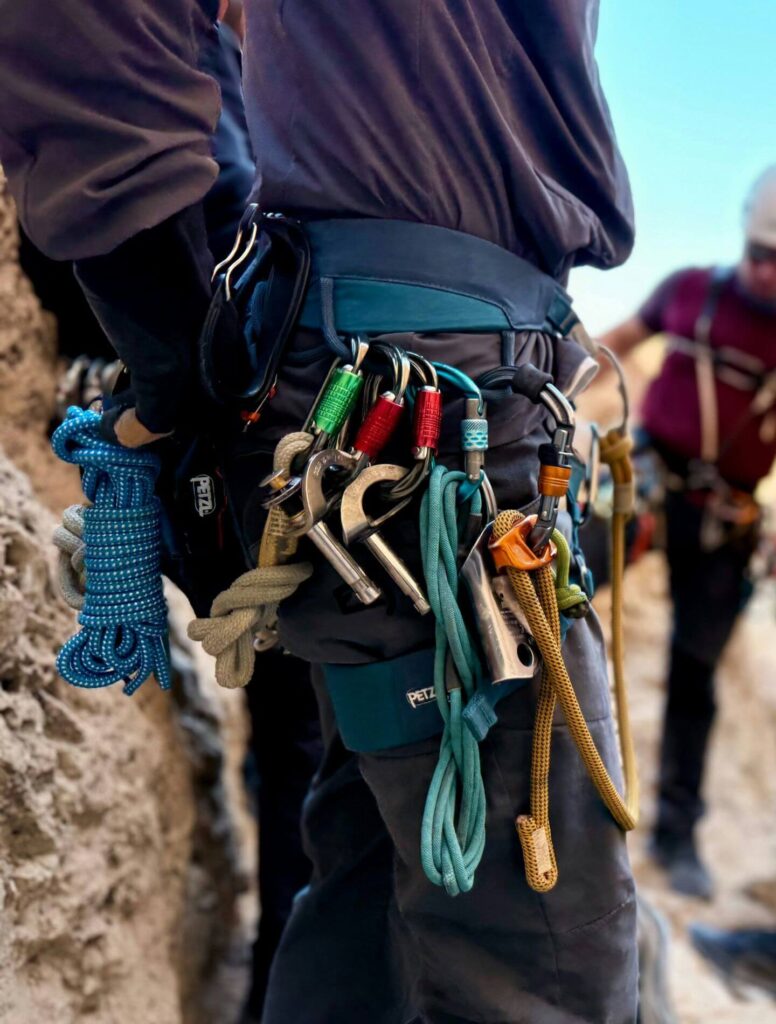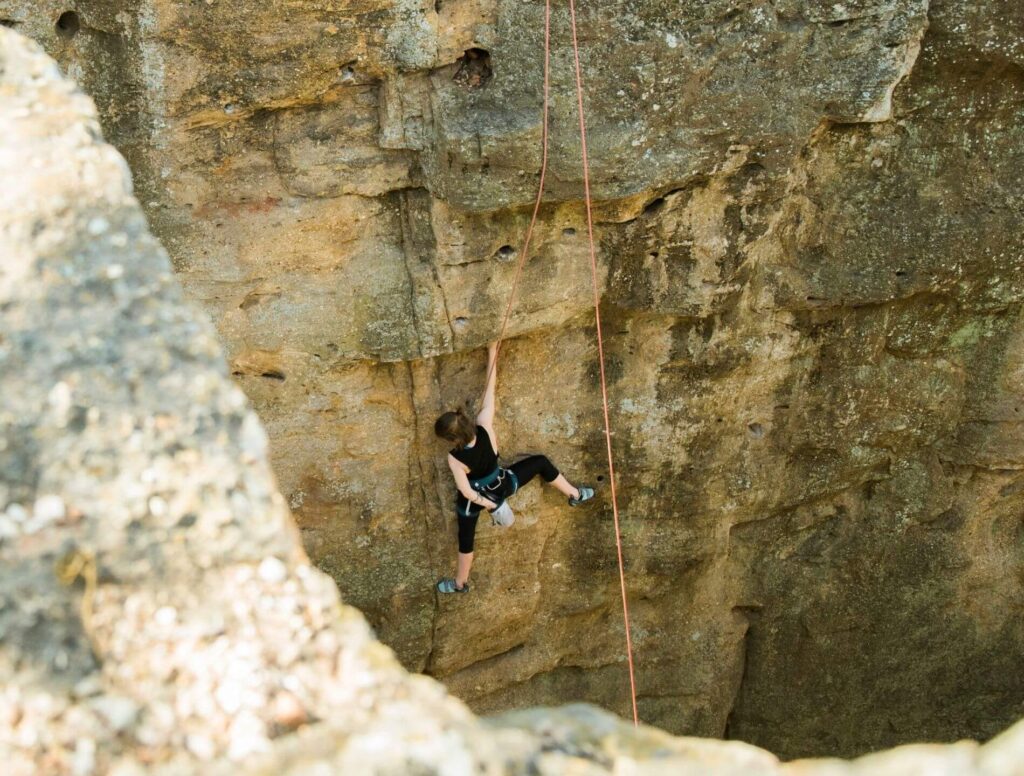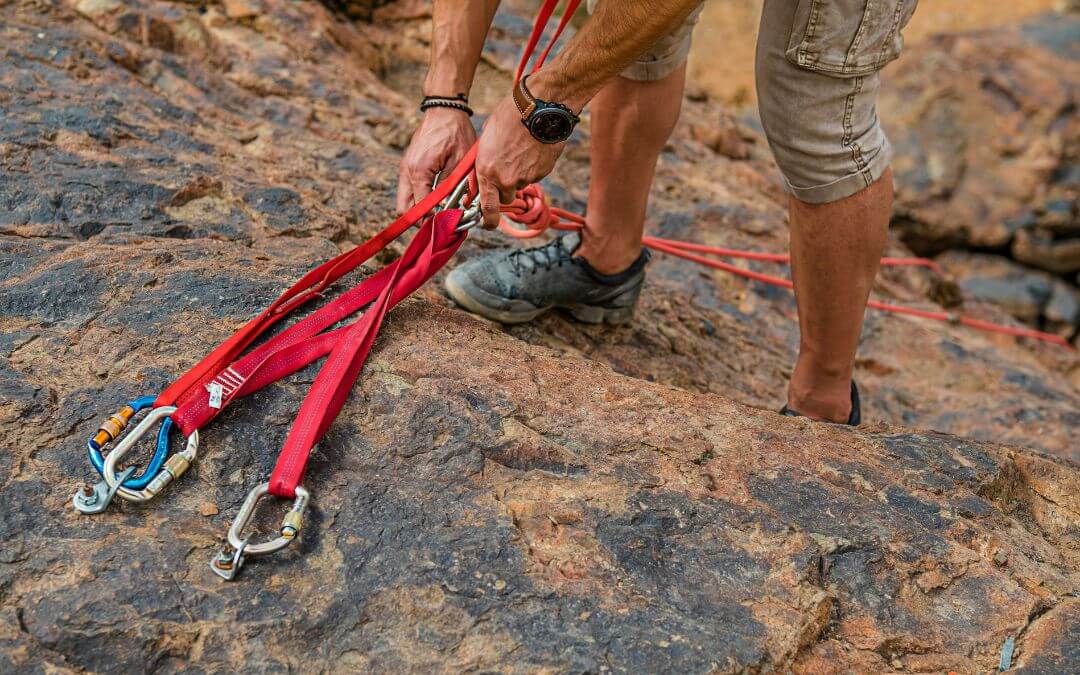Why More Trekkers Are Adding Technical Climbing Gear to Their Packing Lists
Technical climbing gear. The benefits of adding it to your packing list and how to integrate it with the rest of your gear.
Trekking has changed a lot over the years. It isn’t just about wandering along a forest trail anymore. Many outdoor lovers now want more than simple paths. They look for steep ridges, rocky scrambles, and snow patches.
This shift comes from a strong wish to feel alive and ready for anything. If you’ve ever stood at the base of a tough climb, you know the thrill it stirs inside. The idea of being prepared for any kind of terrain has become a big part of modern trekking. That’s why more people are adding technical climbing gear to their packing lists.
Are you wondering why they do so? Well, keep reading to find out.
You may also like: Is the Everest Base Camp Trek Worth It? Here’s the Honest Truth!
The Technical Climbing Gear Trekkers Are Adding
For many, the desire to feel self-reliant drives the move toward more advanced gear. When you know you can handle rough sections on your own, every step feels more rewarding. This change has grown faster because outdoor climbing gear has become easier to find and more affordable. Years ago, only serious mountaineers carried technical equipment. Now, high-quality brands offer gear that works well without draining your budget.
You see lightweight materials, smart designs, and better safety features. All these advances make it simpler for casual trekkers to step into technical terrain with confidence.
Here are some of the most common pieces people add to their packs:
- Lightweight Harness
It gives you a sense of security when crossing ledges or making a quick rappel. It packs down small, so it won’t take much space in your bag.
- Climbing Helmet
A helmet is something many used to skip. That’s changing fast. Falling rocks or sudden slips happen when you least expect them. A climbing helmet shields you from impact, and modern versions feel light and comfortable enough to wear for hours.
- Belay Device and Carabiners
A belay device paired with locking carabiners adds real peace of mind. If you need to lower yourself down a short cliff or secure yourself while waiting on a ledge, this gear makes it smooth and safe.
- Technical Trekking Poles
Standard poles can help balance, but technical poles do more. They lock solid, feel steady on steep slopes, and sometimes have features to anchor you on tricky sections. You’ll feel the difference as soon as you hit loose gravel or a steep descent.
Adding just a few of these items can transform a trek. You’ll feel more ready to face whatever comes your way.

Benefits of Adding Climbing Gear to Trekking
When you start bringing climbing gear along, you open up new experiences. It builds on the idea that being ready isn’t about fear—it’s about freedom. The benefits include:
- Expanded Route Options
With the right tools, you don’t have to skip sections that look too risky. A harness and helmet let you cross exposed ridges. Microspikes keep you moving over icy patches. Trails that once felt out of reach become part of your journey.
- Increased Safety and Security
Many accidents happen when hikers try to tackle steep ground without the right gear. You reduce the chances of slips and falls with the right gear. It’s not just about comfort—it can save you from serious injury.
- Better Preparedness for Changing Conditions
Weather changes quickly in the mountains. One hour it’s dry, and the next, snow starts falling. Climbing gear helps you adapt. In simple words, being prepared lets you focus on the beauty around you instead of worrying about hazards.
- More Confidence to Push Personal Limits
Each time you handle a tough section, your confidence grows. You start to trust your skills. Instead of avoiding challenging routes, you feel excited to take them on.
Adding climbing gear doesn’t just make your pack heavier—it makes your journey richer. It helps you feel more in control, more capable, and more alive.

How to Start Integrating Climbing Gear
You don’t have to jump in all at once. If you’re curious about adding climbing equipment, start small and build your knowledge step by step. Below we have some tips:
- Take an Intro Climbing Course
A short course gives you hands-on practice. You’ll learn to fit a harness, use a belay device, and move on rock safely. Instructors share tips that make a huge difference later.
- Research Brands Known for Reliability
Not all gear is equal. Look for brands with strong reputations. Read reviews from other trekkers who’ve used their products in the field.
- Practice Using Equipment Before Your Trip
Spend time getting familiar with your tools. Try putting on your harness and helmet at home. Practice clipping into a rope or adjusting your microspikes. When you’re on the trail, you’ll feel calm and prepared.
Conclusion
Adding climbing gear can turn a regular trek into a bold adventure. With the right equipment, you’ll move through the mountains with more ease and trust in yourself. If you’ve ever wondered when to take this step, now might be the perfect time. Preparation is what turns a hard trail into an unforgettable story you’ll always carry with you.







